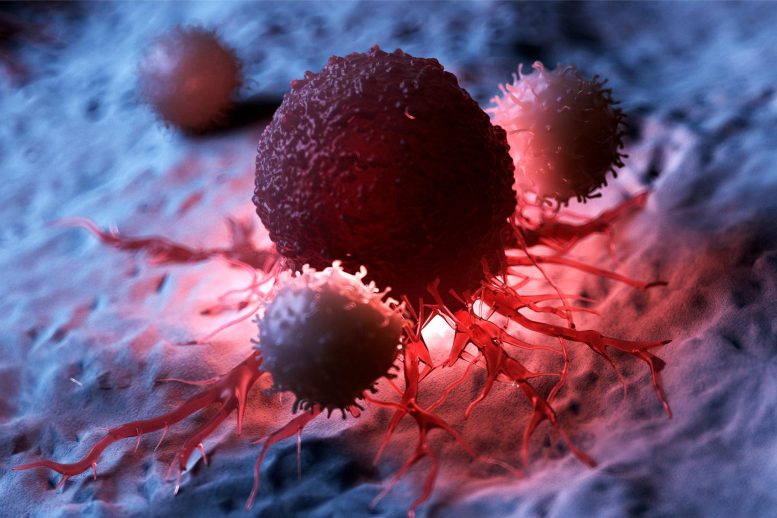
The study discovered connections between the PI3K/Akt and p53 pathways that provide potential targets for novel cancer treatments.
An unexpected relationship between two of the most frequent cancer-causing factors might lead to more effective drugs.
According to a recent study from the University of Wisconsin-Madison, two of the most common genetic changes that result in cancerous cells, which were previously believed to be distinct and controlled by different cellular signals, are really working together.
To treat cancer, researchers have so far concentrated on developing medications that either inhibit one or the other. Treatments that work better could result from an understanding of their cooperative effects.
Cells manufacture a protein called p53, which functions within the cell nucleus to react to stress, but mutations in the gene that makes p53 are the most common genetic abnormalities in cancer. Runaway cell proliferation in cancer is also often linked to mutations that activate a cell’s surface-located pathway called PI3K/Akt.
Cellular signaling pathways allow cells to accomplish important communication tasks that maintain healthy cell functions. The process is a bit like sending mail, which requires a specific series of steps and appropriate stamps and marks on the envelope to deliver a letter to the correct address.
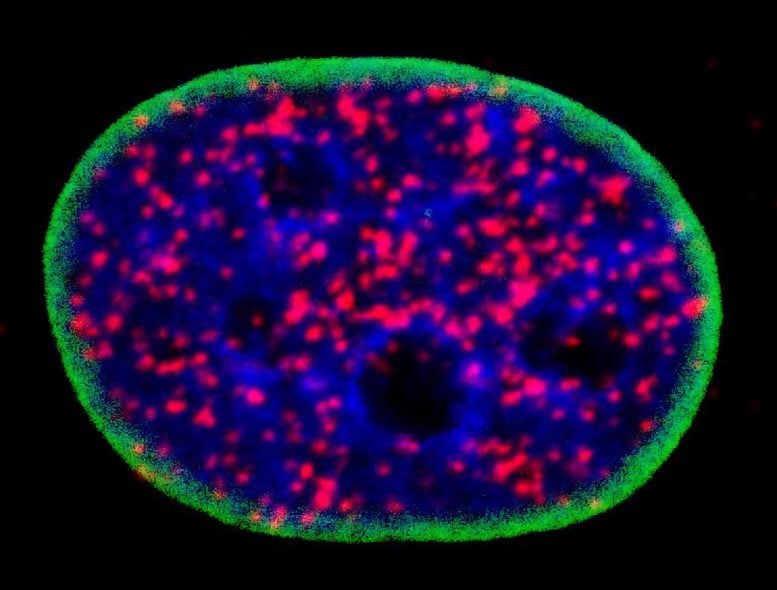
Outlined in green, this nucleus of a cancerous cell contains DNA in blue and red blobs marking the cell’s p53 protein binding with parts of the Atk cellular signaling pathway, a partnership that will prevent the cancerous cell from dying as it should and instead prolong its life and lead it to divide into more cancer cells. Credit: Mo Chen
A team led by UW–Madison cancer researchers Richard A. Anderson and Vincent Cryns has discovered a direct link between the p53 and PI3K/Akt pathways. The findings, recently published in the journal Nature Cell Biology, identified links in the pathways that make promising targets for new cancer treatments.
“We have known for some time that lipid messenger molecules that activate the PI3K/Akt pathway found in membranes are also present in the nucleus of cells,” says Anderson, a professor at the UW School of Medicine and Public Health. “But what they were doing in the nucleus separate from membranes was a mystery.”
Mo Chen, an associate scientist and first author of the new study, used chemotherapy drugs to stress cancer cells and damage their DNA as they were replicating or creating new copies of themselves (which cancer cells do often). She discovered that proteins called enzymes that are part of the PI3K/Akt pathway bind to the mutated p53 protein in the nucleus of the cell and attach lipid messengers to p53, showing the two are directly linked.
Instead of entering apoptosis — the proactive process of cell suicide which removes damaged cells — the cancer cells repaired their chemotherapy-damaged DNA and went on growing and dividing, promoting cancer growth.
“Our finding that the PI3K/Akt pathway is anchored on p53 in the nucleus was entirely unexpected,” says Cryns, a physician-scientist and professor at UW School of Medicine and Public Health.
The PI3K/Akt pathway was thought to be confined to membranes.
“These results also have critical implications for cancer treatment,” Cryns says. Current treatments that target PI3K may not work because they operate on a different enzyme than the one in the pathway the research team discovered.
The enzyme in the new pathway is called IPMK and rendering it inactive keeps p53 proteins from binding with and activating the Atk pathway, like correcting the address on an envelope so it doesn’t go to the wrong place. This prevents the pathway from benefitting cancer cells, making IPMK a promising new drug target.
The researchers, whose work is supported by the National Institutes of Health, the Department of Defense, and the Breast Cancer Research Foundation, have also identified another enzyme, called PIPKIa, that is a key regulator of both p53 and Akt activation in the cell nucleus.
The team had previously shown that PIPKIa stabilizes the p53 protein, allowing it to be active. When PIPKIa was turned off, p53 levels inside the cell fell sharply. In the new study, the team showed that blocking PIPKIa by genetic approaches or a drug triggered cancer cell death by preventing p53 from activating Akt in the cell nucleus.
“What this means is that drug inhibitors of PIPKIa will reduce mutant p53 levels and block Akt activation in the nucleus, potentially a very powerful one-two punch against cancer cells,” Cryns says. Their team is actively searching for better PIPKIa drug inhibitors that could be used to treat cancers with p53 mutations or abnormally active PI3K/Akt pathway.
In addition to searching for drugs to block the newly discovered cancer pathway, the scientists are investigating whether other proteins in the cell nucleus are targets of the PI3K/Akt pathway.
“We know other nuclear proteins are modified by lipid messengers like p53, but we have no idea how broad the landscape is,” Anderson says.
However, the evidence suggests that this could be a feature shared among many kinds of cancers, “a mechanism we are calling a third messenger pathway,” he adds.
Reference: “A p53–phosphoinositide signalosome regulates nuclear AKT activation” by Mo Chen, Suyong Choi, Tianmu Wen, Changliang Chen, Narendra Thapa, Jeong Hyo Lee, Vincent L. Cryns and Richard A. Anderson, 7 July 2022, Nature Cell Biology.
DOI: 10.1038/s41556-022-00949-1
This study was funded in part by the National Institutes of Health, the Department of Defense, and the Breast Cancer Research Foundation.

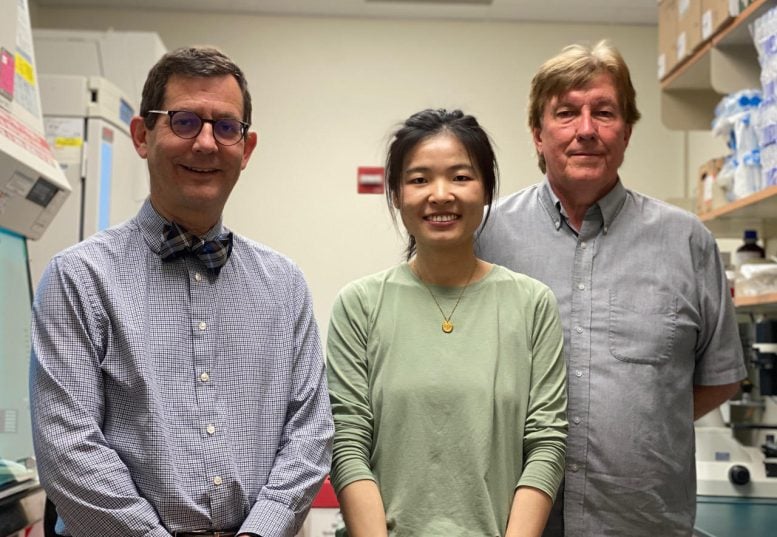


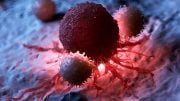
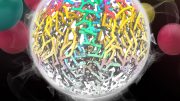



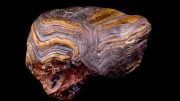
Miss spelling Akt as Atk at least once somewhere.
Very exciting work!
(Misspelling: The enzyme in the new pathway is called IPMK and rendering it inactive keeps p53 proteins from binding with and activating the Atk pathway)
Ask your doctor about PIPSKueeKIa today.
They should have watched ‘Medcine Man’ with Sean Connery, they could have saved 30 years of work.
Eat more fruit and vegetables. Beaten barbecued food. Watch intake of sugar and artificial sweeteners. Same o, same,o
Must water fast as long as you can only to dose with micronutrients specific to your deficiencies. Starving the body forces cancer cell apoptosis
So what does this mean in layman terms? Is it affected by diet, sleep stress etc? 😊
I HAVE MORE OF QUESTION THAN COMMENT. CANCER STOLE MY BEST FRIEND WHO ALSO WAS MY SISTER SO MY COMMENTS WOULD FALL SHORT ON HOW WE ALL SHOULD BE SO APPRECIATIVE TO THE DEDICATION AND DETERMINATION TO MAKE THESE BREAK THROUGHS REALLY TO SAVE PEOPLE THEY WILL NEVER MEET. THAT IS WHAT THE MEANING OF LIFE SHOULD BE.
MY QUESTION IS I HAVE NOTICED SO MANY HEALTH PEOPLE I KNOW HOW ALL KIND OF RANDOM PROBLEMS. AND OTHERS THAT ARE RELATED ARE NOT EXPERIENCING THESE ISSUES. THERES REALLY ONLY ONE THING I CAN POINT OUT THAT THAT IS DIFFERENT. THE PEOPLE THAT HAVE THE ISSUES REALLY DO NOT EXERCISE. OUR BLOOD IS PUMPED BY OUR HEART. BUT THE GLANDS WE HAVE THROUGHOUT OUR BODY REMOVE TOXINS BY GETTING THIS TOXINS TO OUR KIDNEYS OUR LIVER EVEN SWEATING HELPS RID THIS POISON FROM OUR BODY FROM ALL AREAS. THE COMPLICATIONS ARE NOT MINUTE EITHER. SHINGLES. I BELIEVE THE THYROID IS EFFECTED. INFLAMMATION. EYE SIGHT. WHEN WE GET SICK OUR BODY RAISES OUR TEMPERATURE SO IT CAN ? MAKE US SWEAT TO HELP REMOVE THIS POISON OR IS IT TO KILL THE VIRUS BECAUSE OF THE TEMPERATURE. I BELIEVE I KNOW THE ANSWER. THESE ISSUES ARE GOING TO HAPPEN MORE NOW THAN IN THE PAST. IN THE PAST WE DID MORE PHYSICAL ACTIVITIES. THERE IS A PERSON TO EVER LITTLE JOB YOU WOULD OF NORMALLY DONE IN THE PAST. CUTTING UR GRASS. SHOVELING UR SNOW. PLAYING WITH YOUR KIDS. GETTING TOGETHER TO BE SOCIAL AND GO FOR A WALK OR WORK OUT. BUT TECHNOLOGY IS REALLY HAVING AN IMPACT ON THIS IN A NEGATIVE WAY. TAKE MS I BELIEVE THAT IS CAUSED BY WHAT I JUST SAID. MY SINCERE APOLOGIES FOR WRITING SO MUCH. I REALLY ENJOY EDUCATING MYSELF AND UNDERSTAND HOW THE BODY WORKS. THINK ABOUT THE Thymus gland. WHO WOULD OF THOUGHT IF YOU HAD A DIFFICULT ,ABUSIVE AND STRESSFUL CHILDHOOD HOW THAT HAS SUCH A NEGATIVE IMPACT ON UR IMMUNE SYSTEM.
I wonder why the research is being supported by the Department of Defense. That seems pretty strange.
Be very wary of the medical industry, folks–they just want your money, like every other corporation. And they will pump you full of unnecessary drugs so that they can get their hands on that $$